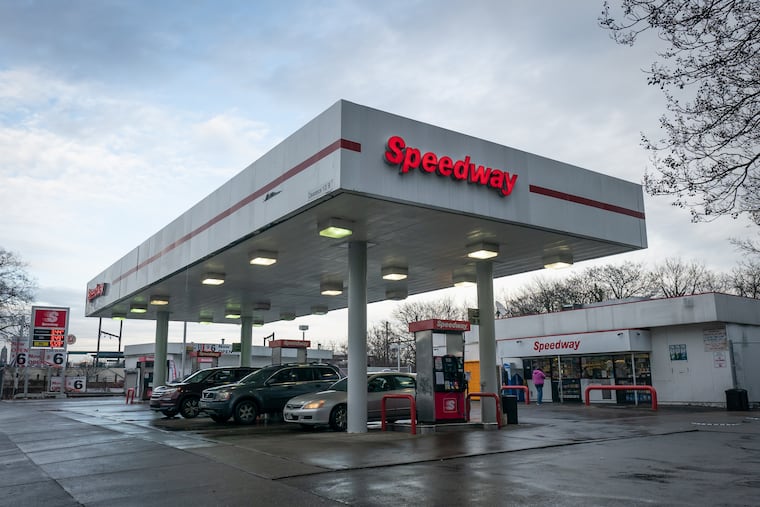Philly gas station sparks outrage by playing loud opera music late at night
Housing advocates say the music is a wrong way to approach concerns about homelessness and they're disappointed corporate owners haven't been open about their motives.

A Germantown gas station has drawn citywide attention for playing operas over its speakers 24/7 and cranking the music up late at night, prompting complaints from neighbors. Still, no clear reasoning has been laid out by the business.
“It was just a wall of sound,” said Wesley Boccardo, who’s lived behind the Speedway that’s off East Chelten Avenue and Kenyon Street for 15 years, and first noticed the music Tuesday night. “It was not normal, it was a completely altered reality in the area. It was as loud as a semi-truck next to you.”
The music continued, but wasn’t as loud Wednesday night, per Boccardo.
Boccardo and other neighbors suspect the music is meant to deter people experiencing homelessness from congregating nearby. Printout signs at the station read: “Due to safety concerns and increased complaints, we cannot allow loiterers or panhandlers to pump gas.”
But housing advocates in the area don’t believe the music is the most humane approach for anyone involved and is turning the gas station into a night nuisance.
Take Whosoever Gospel Mission, which runs a 55-bed temporary shelter for men across the street from the gas station. The Rev. Robert Emberger, executive director emeritus, said the music can’t be heard inside because the windows are closed, but he worries about what might happen in the spring when his residents open them. Emberger said residents deserve to sleep and he wouldn’t rule out filing a police report regarding the noise.
He added that he would like to know with certainty whom the music is aimed at.
“It’s a misdirected effort on their part, to fix something they think needs fixing,” he said. “But if they want to do it, they should be honest about why they’re doing it and be transparent.”
The convenience chain 7-Eleven acquired the Speedway brand in 2021. According to news reports, at least two other Philadelphia Speedway gas stations are playing opera, but it’s unclear if they’re cranking up the music come nighttime the way the Germantown location is. Inquiries to 7-Eleven about whether the playlist is a corporate directive were ignored.
Not everyone is opposed to the music. One resident who declined to give his name said he didn’t think the move hurt anyone and it seemed to be keeping “troublemakers” away from the station.
Others in the neighborhood who work with the homeless population argue the opera method demonstrates a misunderstanding of how people experience housing instability in the northwest part of the city.
Just blocks from the Speedway, Mary Kay Meeks-Hank, executive director of Face to Face Germantown, said the homeless population her organization works with is not sleeping on the streets.
“They’re couch-surfing from one friend’s house to the next,” she said. “They might be looking for a safe haven behind the dumpster, but [homelessness here] doesn’t look the same way it does in Center City.”
To Meeks-Hank, speculation that a business would resort to such a measure to discourage people from experiencing homelessness from hanging around is not hard to believe.
She noted how benches across the city incorporate metal armrests to discourage people from sleeping on them as well as other actions against this vulnerable group.
Last month, a California man was charged with misdemeanor battery after a clip of him hosing a homeless woman with water drew national outrage. Also last month, a 7-Eleven owner in Austin, Texas, openly used the opera tactic to deter solicitors and homeless individuals.
University of Southern California professor Ben Henwood said that as homeless rates have increased in recent years due to rising inequality and housing affordability issues, business owners and city governments sometimes take reactive stances, placing blame on individuals experiencing homelessness.
Henwood, who is also the director of the Center for Homelessness, Housing and Health Equity Research at USC, said tactics like playing music to keep certain people away is only a short-term solution to a bigger problem that requires federal, state, and local cooperation to create adequate shelter and housing.
“The fact is, unless everyone has access to private space, you will end up with people being forced to live in public space, not out of choice, but out of necessity,” he said.